The MRC Clinical Sciences Centre’s Chain-Florey Fellows met at the annual workshop last Thursday (13 November) to present the researchthey have been working on at the CSC, and take part in the lively discussions that followed.
The CSC’s Chain-Florey Clinical Research Fellowships offer medical graduates the opportunity to complete PhDs in basic science at the CSC. Clinically trained Fellows develop a unique appreciation of the practical application of treatments and bring a valuable perspective to science research. Since the scheme’s inception in 2009, 17 Fellowships have been awarded and graduates have emerged ready to tackle clinical research questions with scientific precision. The scheme is jointly funded by the MRC and NIHR through the Imperial BRC.
Every year, the most senior fellows showcase their research in front of an audience of medical experts. This year, Dr Allifia Abbas Newsholme, Dr Philip Webster and Dr Andrew Innes gave fascinating talks that reflected the high quality of training in basic science that they received on the three-year fellowship.
Allifia Abbas Newsholme, who is now close to completing the fellowship with Amanda Fisher’s Lymphocyte Development Group, kicked off the Chain-Florey presentations with a talk on ‘Non-invasive imaging of imprinted gene expression’. She is working to devise a system to image changes in the expression of the CDKNIC gene. Mutations in this gene cause Beckwith-Wiedemann syndrome, which is characterised by an increased risk of tumour formation. Originally from Dubai, Allifia embarked on the fellowship with an undergraduate degree from the University of Leeds, an intercalated BSc in immunology at the Royal Free in London, and two years of training in her specialty of Nephrology at the London Deanery.
Philip Webster, who has completed his PhD with Anthony Uren’s Cancer Genomics Group, presented his research on the genetics and kinetics of BCL2 driven lymphoid malignancies. BCL2 is a gene involved in preventing programmed cell death, known as apoptosis. If the gene is overexpressed it prevents apoptosis. Cells remain alive for too long, leading to cancers and autoimmune diseases. By identifying genes that are commonly mutated with BCL2, Phil altered their expression in lymphoma cells to investigate the role they play in the development of lymphoma – a cancer of white blood cells. Phil trained at Nottingham University Medical School and has worked across the UK and Australia. In 2007, he came to London and later began his specialist training as nephrologist. Having returned to his specialty training in renal medicine, he intends to pursue an academic career path. He is currently renal registrar at Imperial College Healthcare NHS Trust.
“The Chain-Florey Fellowship is an excellent opportunity to acquire solid, basic science training for any doctor intending to have a career in academia. I wanted to gain knowledge, experience and learn new techniques within the genomics of the immune system and then apply this to my interest in autoimmune diseases,” he says.
Andrew Innes’s talk was titled, ‘Investigating senescence regulation: a telomere damage model.’ Andrew, who has almost completed the fellowship with Jesús Gil’s Cell Proliferation Group, looked into the genes that control senescence in the natural ageing process. “Senescence is well known for its role in controlling cancers, but its role in fibrotic disorders is less well understood,” he says. “I’m interested in post-transplant fibrotic disease, specifically Graft Versus Host Disease (DVHD). There’s a lot of evidence that this mimics autoimmune disease, but there is also evidence that could link it to senescence.” Andrew approached the bench with a firmer grounding in basic research than many other Chain-Florey Fellows because he had finished a nine-month Academic Clinical Fellowship at Imperial College with Francesco Dazzi. After training in Dundee, Glasgow and Manchester, Andrew moved to London in 2008 to specialize in Haematology.
Their talks were followed by a riveting panel discussion on the future of personalized medicine. The panelists grappling with this divisive topic were:
Dr Peter Campbell – Head of Cancer Genetics and Genomics at the Wellcome Trust Sanger Institute and joint head of the Cancer Genome Project.
Professor Irene Roberts – Head of the Developmental and Stem Cell Biology Group at the Weatherall Institute of Molecular Medicine.
Dr Anne-Marie Coriat – Director of Capacity Skills and Infrastructure at the MRC.
Dr Sohaila Rastan – President and Chief Executive Officer at Ceros Limited and Chief Scientific Advisor of the RNID.
Professor Jonathan Weber – Director of Research at Imperial NIHR Biomedical Research Centre.
Dr Jeremy Griggs – Biology Leader and Biologist in the Discovery Partnerships with Academia team at GlaxoSmithKline.
The afternoon ended with a keynote speech from Dr Peter Campbell. He discussed ‘the vast somatic mutational landscape of cancers’, with particular reference to the molecular pathology of Acute Myeloid Leukaemia (AML).
To read more about the CSC Chain-Florey scheme, its sponsors and advocates, current and previous Fellows, please visit the CSC website.
Almut Caspary
Institute of Clinical Science
Faculty of Medicine
Read “From bench to bedside – is personalised medicine the future?” CSC Chain-Florey Fellows invited leading experts to have their say in full
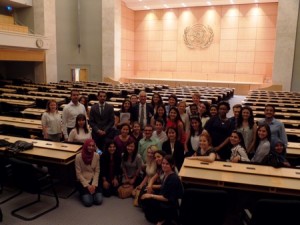 On Wednesday June 17 2015, 39 students from the MPH traveled to Geneva for an educational visit organised by the WHO Collaborating Centre for Public Health Education and Training. For three days, students attended talks at the WHO, MSF, UNHCR, the UN and Global Fund. They learnt about the work of international health organisations and attended talks on health systems and innovation, the global observatory on health R&D, evidence-informed policy, health system financing and the global burden of NCDs. They had the opportunity to meet public health experts such as Dr Najeeb al Shorbaji and Nicola Magrini. Students were extremely pleased with the trip and they returned to London with an unforgettable experience, advice about their future careers, and connections with key public health leaders.
On Wednesday June 17 2015, 39 students from the MPH traveled to Geneva for an educational visit organised by the WHO Collaborating Centre for Public Health Education and Training. For three days, students attended talks at the WHO, MSF, UNHCR, the UN and Global Fund. They learnt about the work of international health organisations and attended talks on health systems and innovation, the global observatory on health R&D, evidence-informed policy, health system financing and the global burden of NCDs. They had the opportunity to meet public health experts such as Dr Najeeb al Shorbaji and Nicola Magrini. Students were extremely pleased with the trip and they returned to London with an unforgettable experience, advice about their future careers, and connections with key public health leaders.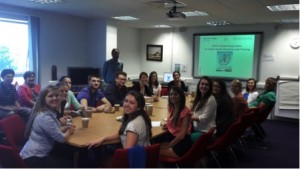 On a hot afternoon of 11 June a group of 32 American Public Health students from the East Carolina University came to learn more about the NHS and Public Health in the UK. The group was led by J. Don Chaney, Associate Professor and Chair in the Department of Health Education and Promotion and Professor Karen Vail-Smith. They were given presentations by the team from the WHO Collaborating Centre on the work of the Centre; Professor Azeem Majeed talked to the students about the work of the Department and the different roles of an UK GP in comparison to the American Healthcare system equivalent. Dr Austen El-Aosta presented the English NHS from its conception till the actual times, and Dr Alex Chen engaged the group with a very passionate presentation on organ trafficking problem in Asia.
On a hot afternoon of 11 June a group of 32 American Public Health students from the East Carolina University came to learn more about the NHS and Public Health in the UK. The group was led by J. Don Chaney, Associate Professor and Chair in the Department of Health Education and Promotion and Professor Karen Vail-Smith. They were given presentations by the team from the WHO Collaborating Centre on the work of the Centre; Professor Azeem Majeed talked to the students about the work of the Department and the different roles of an UK GP in comparison to the American Healthcare system equivalent. Dr Austen El-Aosta presented the English NHS from its conception till the actual times, and Dr Alex Chen engaged the group with a very passionate presentation on organ trafficking problem in Asia.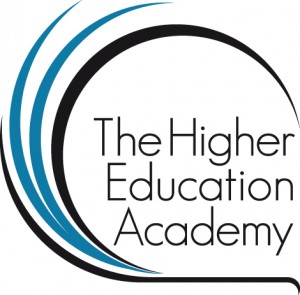
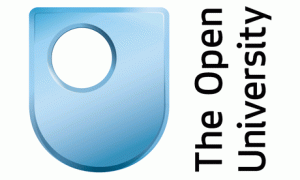


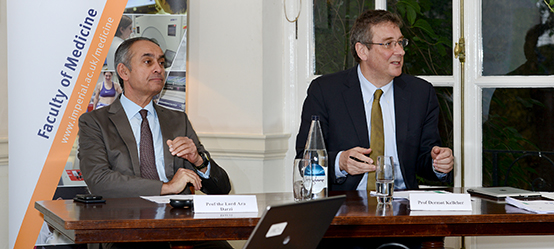
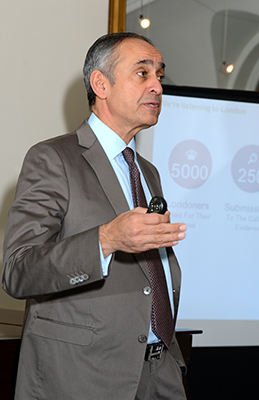 Professor Darzi commented on groups in London with different care needs which need to be addressed (physical, mental and social needs) and strongly believes that the London Health Commission presents a unique opportunity to bring together health, local government, NHS and commissioners for the benefit of the population. Examples of suggested initiatives likely to impact on the health of Londoners if introduced include improving access to primary care , rewarding active travel rather than relying on public transport and potentially designating parks as a smoke free zone.
Professor Darzi commented on groups in London with different care needs which need to be addressed (physical, mental and social needs) and strongly believes that the London Health Commission presents a unique opportunity to bring together health, local government, NHS and commissioners for the benefit of the population. Examples of suggested initiatives likely to impact on the health of Londoners if introduced include improving access to primary care , rewarding active travel rather than relying on public transport and potentially designating parks as a smoke free zone.